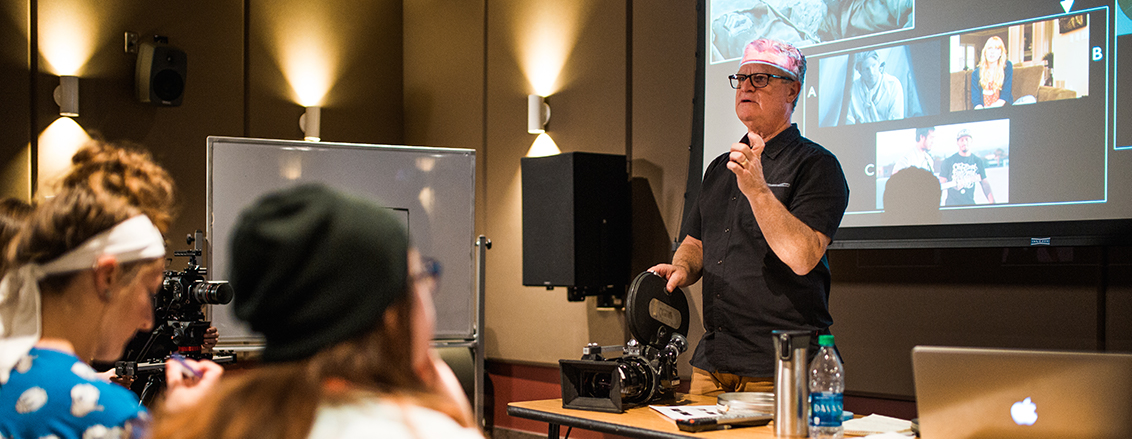Minor in Media Studies

Overview
We are all consumers and creators of media, regardless of our background or field of study. It's crucial, however, to be able to critically engage with the content we take in, moving beyond our routine consumption. As a media studies minor, you will receive the training you need to thoughtfully analyze the stories being told through film and television. We will dive into visual style, media literacy and the cultural dynamics of media — dynamics that have the power to wield incredible influence in our society. The minor is offered upon the completion of 18 credits, 12 of which must be upper division.
Courses
Below are the course requirements for this academic program. In addition to these program-specific requirements, all majors include Biola's traditional undergraduate core curriculum. For more program details, including a sample course sequence, visit Biola's academic catalog.
Mission
The Media Studies minor equips students to serve as observers and interpreters. We offer students a thorough grounding in the theory, research and practices of cinema and media arts. We begin with an understanding of the ancient arts and aesthetics inherent in storytelling. Students will learn the history of their discipline, developing the research skills and critical thinking necessary to recognize their position in relationship to critical junctures in cinema and other forms of the media.
Overview
In order to address the pervasiveness of media across multiple disciplines, the Media Studies minor is intended as a compliment to any major that foresees the integration of media into their future career goals. The unconscious influences are identified and analyzed so that students are equipped with the knowledge necessary to interact with media shrewdly and purposefully regardless of their field of study. This includes understanding psychological theories of perception, the impact of media technologies, the economic infrastructure of media, and the linguistic and communication theories of ideology and meaning-making.
By exploring media's sociological, rhetorical, aesthetic, literary and/or journalistic impact, the remaining elective classes allow for a student to examine the complex relationship between communication/media theories and a diverse set of individual, social and professional practices.
Curriculum Requirements
A Media Studies Minor is offered with the completion of 18 credits.
| Code | Title | Credits |
|---|---|---|
| Program Courses | ||
| CNMA 102 | Visual Aesthetics | 3 |
| CNMA 320 | Studies in Film Criticism | 3 |
| or SOCI 460 | Topics in Sociology | |
| CNMA 459 | Faith and Film | 3 |
| COMM 254 | Communication Theories | 3 |
| Program Electives | 6 | |
| Select 6 credits from the following (3 credits must be upper-division): | ||
| History of Cinema | ||
| Film Appreciation | ||
| The Power of Media | ||
| Film, Television, and the Arts: Racial and Gender Issues | ||
or SOCI 454 | Film, Television, and the Arts: Racial and Gender Issues | |
| Rhetoric of Media Studies | ||
| Rhetorical Criticism | ||
| Topics in Diverse Literatures (fulfills Core Curriculum Literature requirement) | ||
| Total Credits | 18 | |